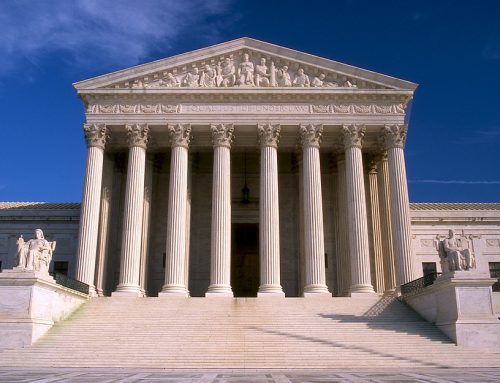The Lagos Small Claims Court like other small claims courts across the world was established to help recover debt in a fast and easy way.
As a business owner who is thinking of recovering debts, the thoughts of going through a lengthy court trial would definitely discourage you.
Also, court trials are known to be expensive, rigid and unpredictable. Court adjournments, trial technicalities and other unforeseen circumstances could prolong a simple case and make it last for two or three years. And at the conclusion of the case, the losing party could decide to exercise his right of appeal even up to the supreme court. If he appeals, then a simple debt recovery case becomes incessantly prolonged.
This is the reason why many business people shun the courts in their bid to enforce business contracts. Most especially if the monetary sum involved is not so much as they would consider going to court for. For instance, in order to recover a debt of N2million, the prospects of spending 2 years in court may not be alluring.
Many business people because of this have inadvertently forgiven their debtors and moved on while others have had to resort to primitive ways of conflict resolution. For example, some business people have been known to facilitate the police to arrest their debtors.
By cajoling the police to add a criminality flavor into a civil matter, they may succeed in forcing the debtor to succumb to their demand. The debtor, for fear of being prosecuted quickly pays off the debt.
While wrongly employing the police as a debt recovery agent might have worked, it is often not the ethical thing to do.
Due to the difficulties of debt recovery in commercial cases, the Lagos State Judiciary in 2018 introduced the small Claims Court to resolve simple debt recovery disputes.
Below are some of the most frequently asked questions on the small claims court procedure in Lagos state.
Small claims courts are special courts created for the speedy dispensation of commercial cases with claims not exceeding N5million.
If you intend to recover a debt that does not exceed N5million then you can recover it through the small claims court.
The objective of the small claims court procedure is to provide easy access to an informal, inexpensive and speedy resolution of simple debtrecovery disputes in the Magistrates’Courts.
The small claims courts were created on April 26, 2018 in Lagos State by the Chief Judge of Lagos State, Justice Opeyemi Oke through the deployment of 15 magistrates in the newly-opened small claims courts.
An action may be commenced in the small claims court where the claim is for a liquidated monetary demand in a sum not exceeding N5million, excluding interest and costs.
A liquidated monetary demand is a demand for a specific sum of money which is usually fixed and clearly known by the parties or can easily be proved.
For instance in a contract for supply of goods where A is to supply goods worth N2million to B. Upon the supply of the goods, if B refuses to pay the N2million, then A can sue B at the small claims court to recover the N2million. The N2million therefore constitutes the liquidated monetary demand.
There are different procedures and stages in the debt recovery process under the small claims court procedure.
However, the hearing of the entire proceedings ought not to be more than thirty (30) days from the first date of hearing.
Also the entire period of proceedings from filing till judgment ought not to exceed sixty (60) days.
The stages and procedures involved are similar to what is obtainable in conventional debt recovery cases.
The first stage is that the claimant must have served on the Defendant, a Letter of Demand.
The second stage is that the claimant must file a Small Claims Summons which shall be marked “Qualified for
Small Claims” and shall be served on the defendant(s).
The third stage involves first appearance of the parties at the court wherein the Magistrate shall promote, encourage and facilitate amicable settlement of the dispute.
Where amicable settlement fails, then hearing shall be conducted by the court from day to day as may be practicable.
After the hearing of the matter, the court will then deliver its judgment.
No. Parties are at liberty and are encouraged to contact one another with a view to settling the matter amicably or to narrow down the issues.
If both parties agree on settlement then they must inform the court at the next hearing date and the court will enter a consent judgment in accordance to the wishes of the parties.
The Small Claims Court’s jurisdiction is limited. An action may only be commenced in the court where the claim is for a liquidated monetary demand in a sum not exceeding N5million excluding interest and costs.
What this means is that the court cannot make an order for a recovery of a debt that exceeds N5million. Where the court does that, the court will be said to have acted in excess of its powers.
Hence, it is advisable that a claimant who wishes to recover debts higher than N5million should proceed to the appropriate court in order not to be deemed to have abandoned the excess of his claim.
The small claims court is only for the recovery of debt emanating from commercial transactions.
A landlord and tenant transaction although quite akin to a commercial transaction requires a different procedure which is not within the purview of the small claims procedure.
Thus, action for recovery of rent or mesne profit cannot be instituted at the small claims court.
If the claimant succeeds in his action for recovery of debt, the defendant is required to comply with the judgment and pay the judgment sum within fourteen days after judgment is delivered.
If however the defendant refuses or fails to pay the judgment sum within the specified time, then the judgment will be enforced in like manner as any order of theMagistrate’s Court for the payment of money.
Where either of the parties is dissatisfied with the judgment of the court, he or she can appeal the court’s decision.
Appeal from the small claims court lies in the High Court designated to hear appeals from the small claims courts.
The rule provides that the whole appellate process from the assignment of the Appeal to Judgment shall not exceed thirty (30) thirty days.
It should be noted that a litigant who is dissatisfied with the small claims court decision only has within 14 days after the decision to file his appeal.
Conclusion
The small claims courts have provided quick and easy solutions to debt recovery of small sums of money. It is a veritable tool for small and medium business who are in need of legal help.
If you need help recovering a debt you can Call us at 08168504153“>call us immediately or book an appointment to meet with us online or physically





